Muscovy Duck Behavior
Muscovy Duck Behavior: What Are Muscovy Ducks Like?
If you are planning to keep muscovy ducks as pets on your farm, this article can act as a guide for muscovy duck behavior and what you need to be prepared for.
While Muscovies might not be as popular as mallard ducks, they make great poultry pets and are known for their tasty meat and duck eggs.
In case you’re thinking about getting some Muscovy ducks, you might be curious about their behavioral traits.
The last thing you need in your poultry is a flock of ducks that are too aggressive for you to manage.
Thankfully, Muscovy ducks are quite calm and have a nice temperament most of the time. This article explores Muscovy duck behavior in detail.
What Are Muscovy Ducks Like?
Don’t worry; Muscovy ducks are rather friendly in general.
While they’re a bit shy and might initially avoid human contact, Muscovies are a curious bunch once they get to know you.
Apart from poultry, they also make nice companions.
You can even train Muscovies to come up to you and let you pet them.
While they might not let you cuddle as a dog or a cat does, they might enjoy sitting at your feet while you work.
However, they do share an unexpected trait with dogs – they wag their tails to communicate when they are happy.
With that said, you should note that Muscovy ducks may also turn quite aggressive at times.
Like most ducks, the females are fiercely protective of their offspring.
The usually friendly Muscovies might turn quite aggressive at anyone getting too close to the eggs or ducklings.
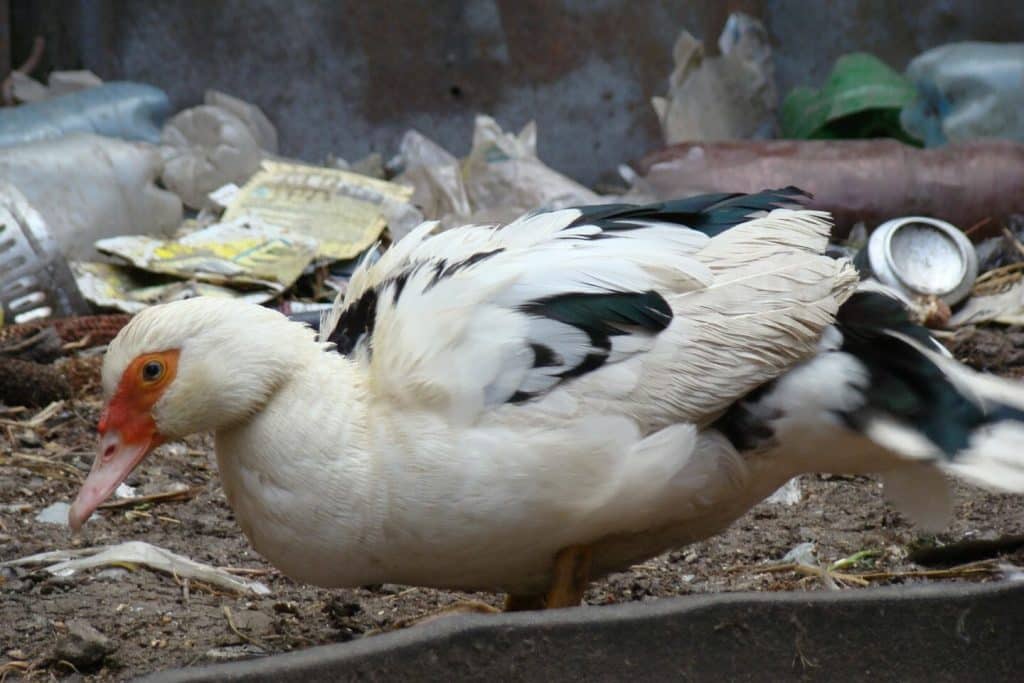
The drakes might sometimes grow aggressive upon reaching sexual maturity, trying to assert dominance.
Such behavior is particularly noticeable during the mating season.
Besides these, Muscovy ducks show certain unique behavior compared to other ducks, such as roosting in trees at night.
Unlike ducks, they walk around with their heads held high – a behavior more common among geese.
Wild ducks of this breed are tropical birds and live amidst dense vegetation.
However, they’ve also adapted to temperate climates.
Muscovies are a hardy breed and thrive in hot and cold regions alike.
Are Muscovy Ducks Loud?
One of the best things about having Muscovy ducks as pets is that they are nowhere as loud as mallard ducks.
They’re rather quiet most of the time, and even when they make any noise, it’s barely audible.
Unlike other duck species, Muscovies cannot quack loudly.
The closest they can get is a rather soft croaking sound.
Most of the time, the males let out a low-pitched hissing noise that’s barely audible and sounds more like heavy breathing.
Females can make soft quacks at best, but they usually don’t like to talk at all.
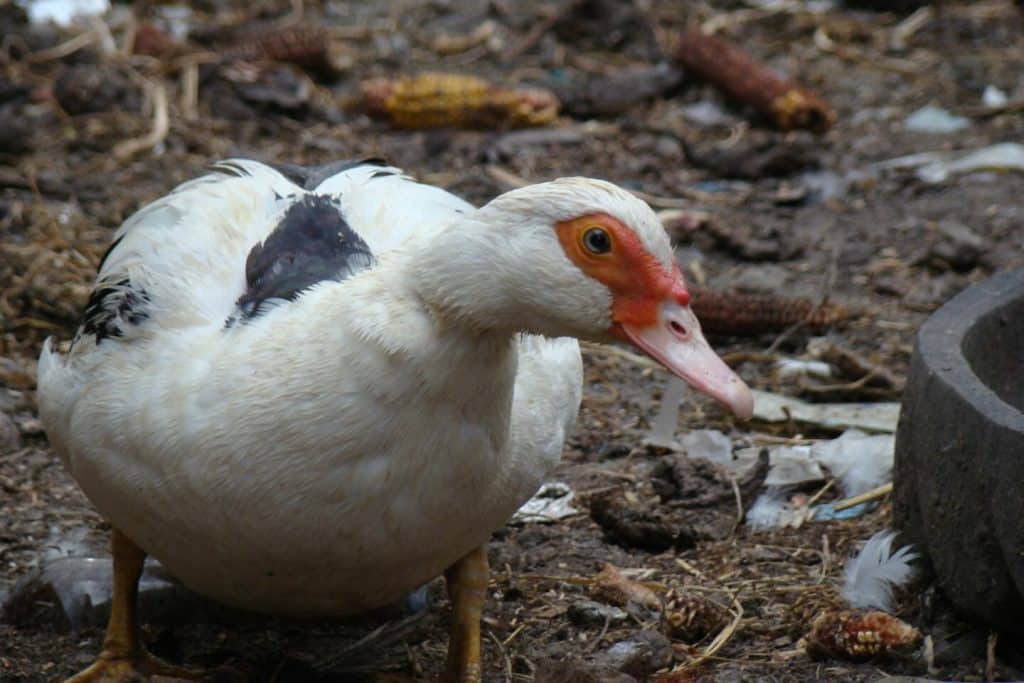
Are Muscovy Ducks Intelligent?
Believe it or not. Muscovy ducks are incredibly intelligent.
Apart from their inquisitive nature, they’re also quite good at following voice commanders once trained.
Muscovies are fairly obedient, which is a big plus if you’re planning to get them as domestic ducks.
How Smart Are Muscovy Ducks?
Muscovy ducks are quite smart.
As mentioned earlier, they can be easily trained as pets and can even follow voice commands.
Muscovies have also been known to show high social intelligence.
Not only are they affectionate towards chickens and other birds, but Muscovy owners have also reported witnessing the ducks nursing their chickens at times.
How do Muscovy Ducks Communicate?
Muscovy ducks mostly communicate using the low-pitched hissing sounds I described earlier, along with other vocalizations.
They are also seen to bob their heads up and down when communicating with each other.
While Muscovies wag their tails when they’re happy and playful, they also do it to ward off predators.
If you see your Muscovy ducks wagging their tails among themselves, it’s likely the former, and you should probably check it out.
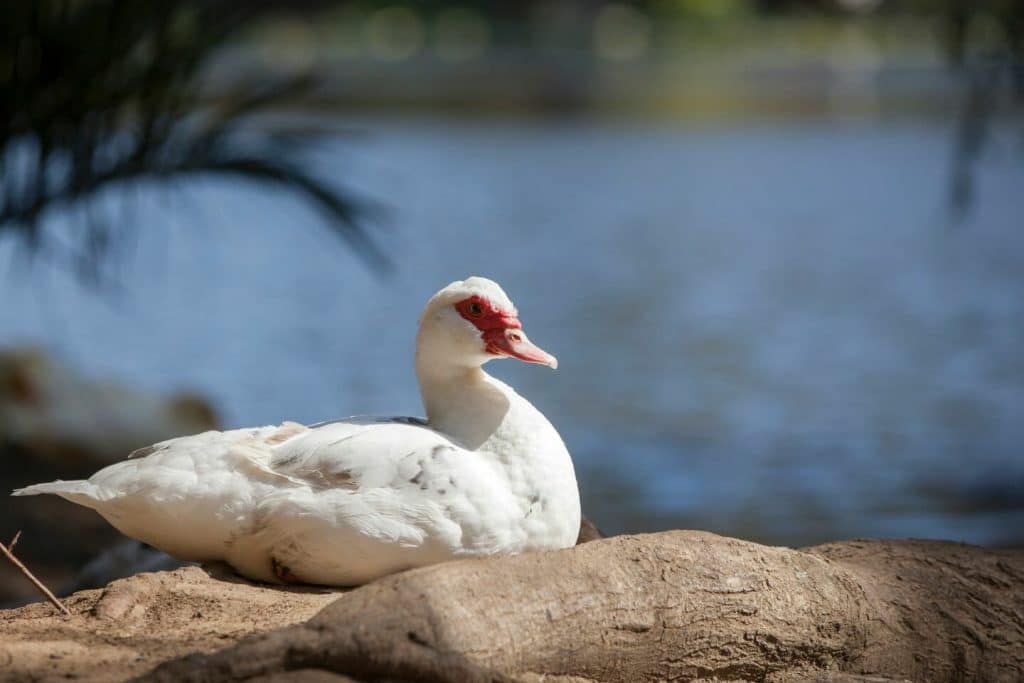
Are Muscovy Ducks Messy?
As you might probably be aware, ducks are quite messy, and their coops need frequent cleaning.
Unfortunately, this is one of the areas where Muscovies aren’t very different from other species of duck.
You’ll still have to spend considerable effort cleaning up.
The fact that Muscovy ducks can fly only makes things worse.
It means you might have bird droppings all over the property if you allow them to fly around.
This is one of the reasons why a lot of people dislike feral Muscovy ducks.
Keep in mind that Muscovy ducks tend to shoot their droppings up to a foot and a half behind them.
Make sure to maintain the distance when your Muscovies are defecating.
Do You Need To Keep Muscovy Ducks in Pairs?
While you can keep a lone Muscovy duck, it’s highly advisable to keep them in flocks or at least pairs.
Apart from mating, they also flock together for protection, warmth, and companionship.
Muscovies are social birds, and a lone Muscovy duck certainly won’t be happy.
No matter how much time you spend with them, it won’t be enough to make up for the lack of a companion of its own species.
You should also keep in mind that males are sexually very prolific.
They are accustomed to mating with multiple females over different seasons.
Having only a pair of Muscovies might result in the female getting over-mated, which can even lead to her death.
I’d advise keeping at least two or three female Muscovies with a drake, especially if the first one starts showing signs of tiredness.
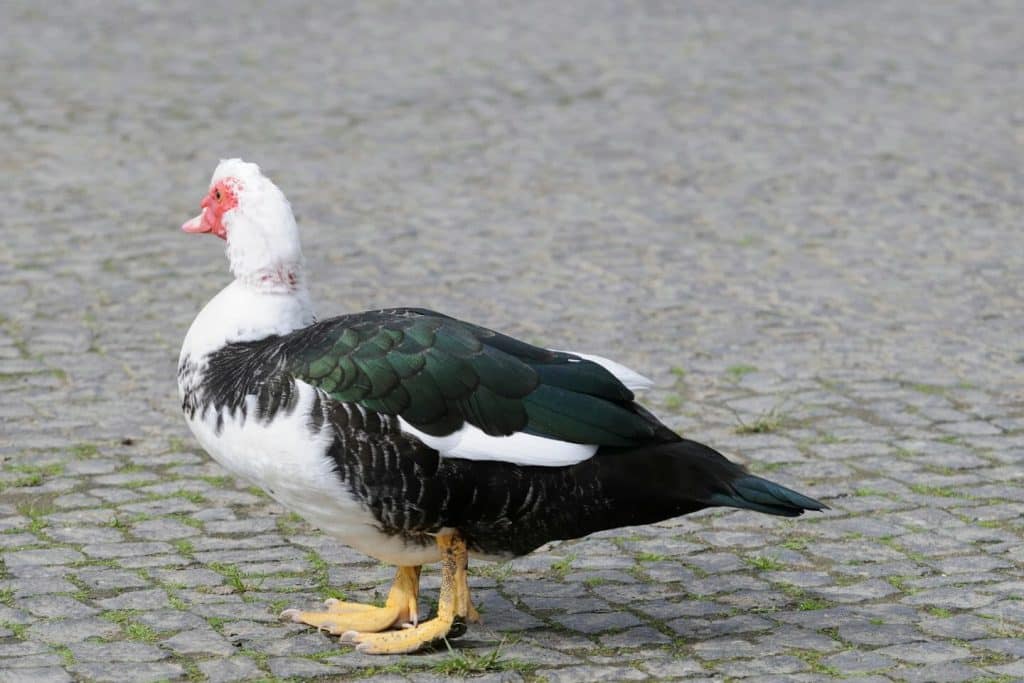
Do Muscovy Ducks Feed in Pairs?
Muscovies often feed in pairs, but not always. You may also find them feeding in small groups instead.
They’re frequently seen roosting in pairs too. However, being polygynous, Muscovies don’t form stable pairs.
Do Muscovy Ducks Hunt in Pairs?
No, muscovies love to forage for their food alone.
They love eating insects and small pests, whom they can pick up from the ground or even pluck out from the air (in the case of mosquitos).
Their eating habits are one of the biggest pluses of muscovies.
They can quickly rid your farm of ants, mosquitos, flies, spiders, and any other pests that are bothering you.
Frequently Asked Questions
Can Muscovy Ducks See in the Dark?
If you are planning to keep them on your farm, it might be best not to leave out the feed after the evening.
Muscovies will get up during the night and feed and might end up overfeeding if you keep doing it all the time.
They won’t go out to forage for themselves, but they can see well enough to watch you refill the food bowl and take advantage of it.
Why Do Muscovy Ducks Bob Their Heads?
For example, if it is mating season, a male muscovy might be bobbing its head as a part of mating rituals.
If it is aggressive head bobbing aimed at a rival male in the camp, then that’s probably a sign that your bird is being protective of its territory.
Lastly, if there is nothing wrong, muscovies might bob their heads just because they like you and are trying to attract your attention.
Why Do Muscovy Ducks Pant?
There is no clear scientific evidence as to why they have evolved this way.
But certainly, these ducks are very different from their ordinary mallard-derived brethren, and this is just another one of those points of difference.
Muscovies originated in South America and belong to a distinct genus and species, which is why they are sometimes called as muscovy geese.
Do Muscovy Ducks Swim Underwater?
While they don’t swim underwater for too long, the dives are enough to catch small insects and prey floating just under the surface of the water.
Wrapping up
Ultimately, Muscovies are a fairly nice choice if you plan to raise domesticated ducks.
It may take you some time to get accustomed since Muscovies are quite different from other ducks.
You’ll also have to make special arrangements to cater to their nesting needs.
However, raising Muscovy ducks isn’t too difficult once you get the hang of it.
I hope this article will be helpful and wish you all the best in your efforts.

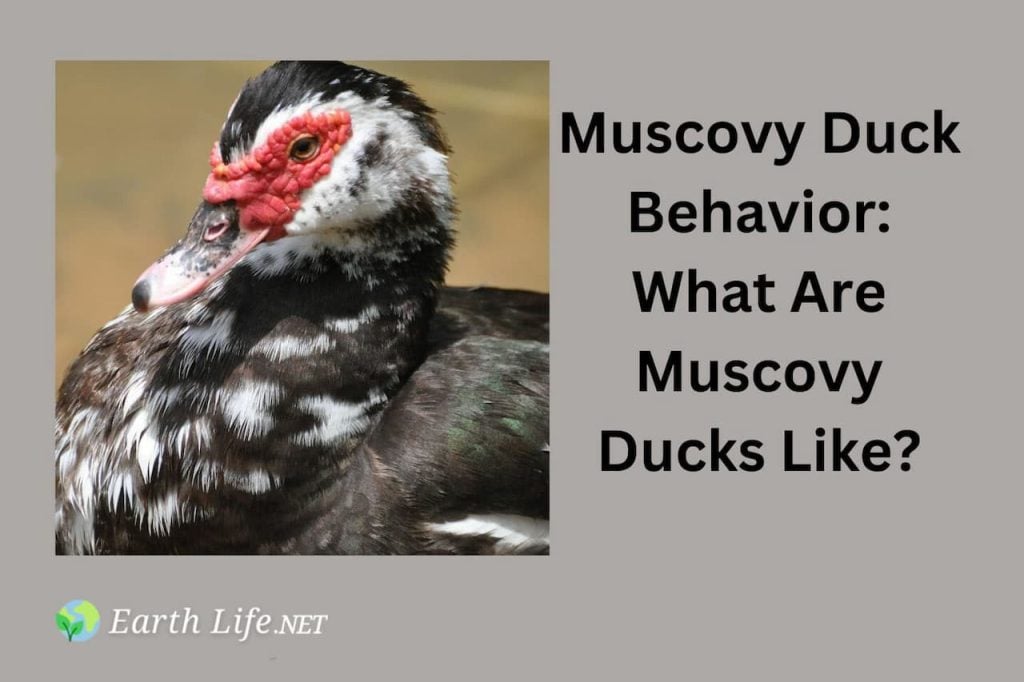
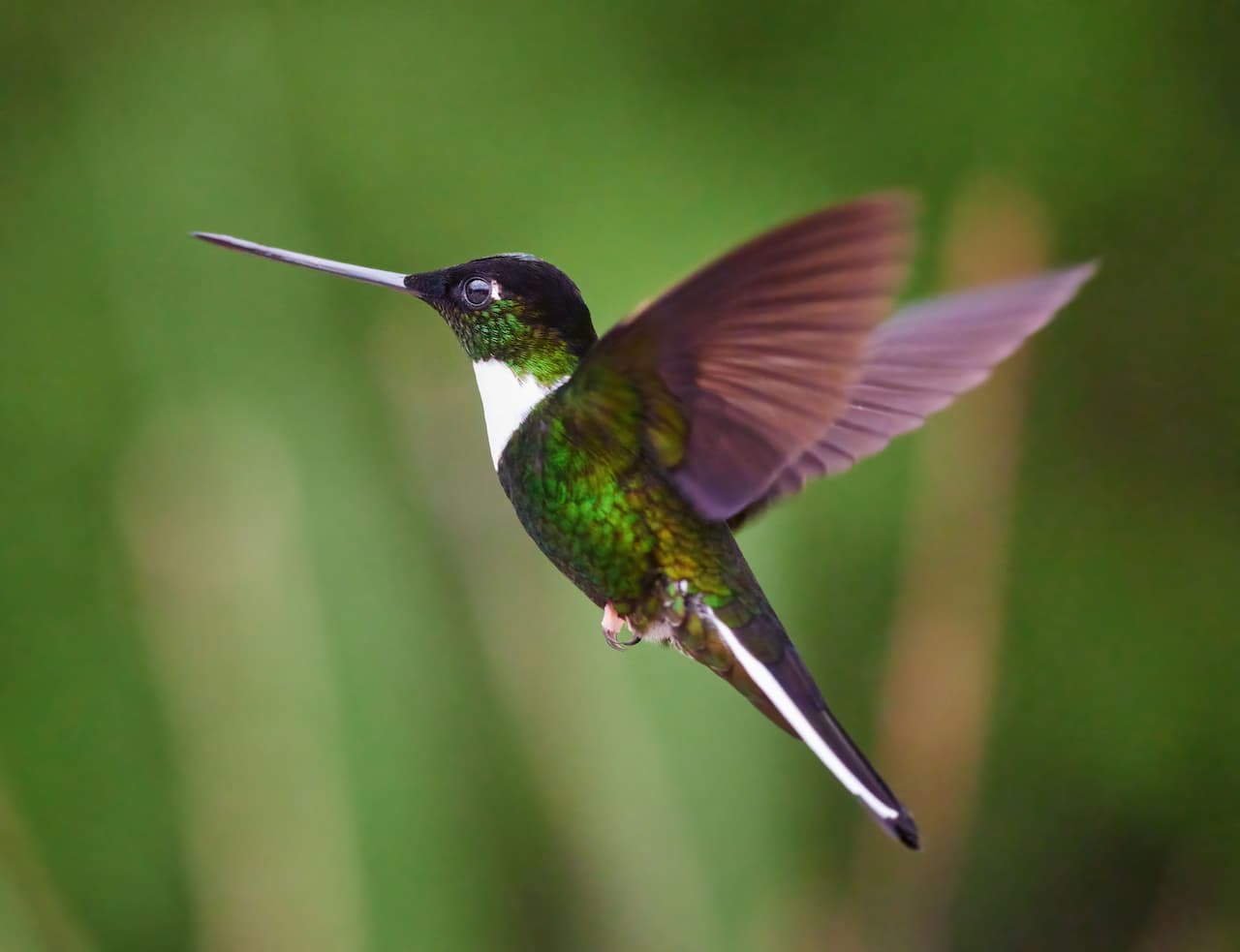
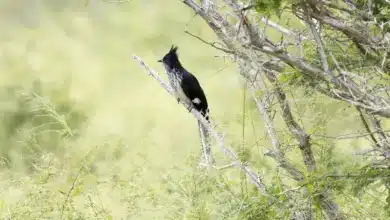
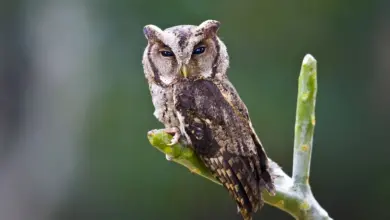
A male muscovy appeared in my pond approximately March 2023. He was observed attacking a heron that luckily got away. All the rest of the year, it was aggressively trying to fit in with various Canadian Geese flocks, but never saw him actually attack any. Today, December 5, I saw him kill a heron. I saw no other geese or ducks, just a heron or two. It looked like he was trying to eat the heron after it was killed. I’m assuming it is a feral bird. Is that common behavior for a feral? But you mentioned positive training to reduce muscovy aggression. Can that be done with a feral bird? If so, how? I’m concerned about it attacking my grandchildren. Thank you.